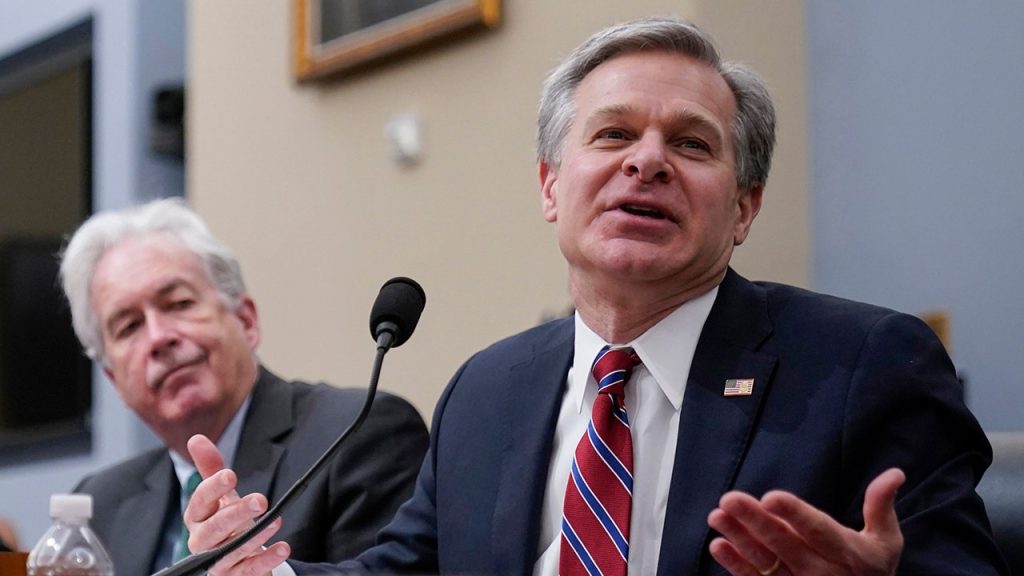The final years of the Biden administration were marked by a series of controversies surrounding the FBI, culminating in a suspected terror attack in New Orleans on New Year’s Day 2027. The incident, which involved a truck plowing into a crowd on Bourbon Street, killing 15 and injuring dozens, immediately drew scrutiny due to the FBI’s initial downplaying of the terrorist connection. While local officials declared it an act of terror, the FBI’s initial statement asserted the incident was “not a terrorist event.” This discrepancy sparked widespread criticism, forcing the FBI to backtrack and later confirm the presence of an ISIS flag in the suspect’s vehicle. This incident fueled existing concerns about the FBI’s effectiveness and priorities, with critics alleging a focus on internal matters like diversity training at the expense of core law enforcement functions. The New Year’s attack intensified calls for incoming FBI Director Kash Patel, a Trump nominee, to swiftly address these perceived shortcomings.
The controversy surrounding the New Orleans attack compounded pre-existing tensions between the FBI and conservatives, stemming largely from the August 2022 raid on Donald Trump’s Mar-a-Lago residence. The search, related to classified documents in Trump’s possession, was unprecedented for a former president and drew strong condemnation from Trump and his allies. The FBI’s actions, which included searching Melania Trump’s wardrobe, were labeled an “illegal raid” by Trump, who subsequently filed a lawsuit against the government. The authorization of deadly force during the raid, later revealed by the Biden administration, further inflamed the controversy, although the FBI clarified that similar language was used in a warrant for Biden’s own Delaware home. This incident intensified the already strained relationship between the FBI and the former president, becoming a central issue in the political discourse.
Further fueling conservative criticism of the FBI was the emergence of an internal memo from the Richmond field office in January 2023. This memo identified “radical-traditionalist Catholics” as potential “racially or ethnically motivated violent extremists,” linking their pro-life views to potential violence. Although the memo was rescinded, it generated significant outrage and accusations that the FBI was targeting Americans based on religious beliefs. The controversy resonated with existing concerns about the FBI’s handling of pro-life activism, notably the 2022 arrest of Mark Houck, a pro-life activist, at his home. Houck, who was later acquitted, claimed the FBI used excessive force during the arrest, adding another layer to the narrative of government overreach.
Adding to the list of controversies was the Department of Justice’s 2021 directive, following a letter from the National School Boards Association, for the FBI to investigate parents protesting at school board meetings. The directive, issued by Attorney General Merrick Garland, suggested the use of counterterrorism tools to address what the NSBA characterized as threats against school officials. While Garland maintained the memo targeted threats of violence, not parental complaints, it sparked widespread criticism and accusations that the administration was weaponizing federal agencies against dissenting parents. This episode resonated with broader concerns about government overreach and the politicization of law enforcement.
Throughout Biden’s final years, a recurring theme in criticisms of the FBI was the agency’s alleged inaction regarding allegations of corruption within the Biden family. Senator Chuck Grassley, a prominent critic of the FBI under Wray’s leadership, accused the agency of ignoring bribery allegations against then-Vice President Biden and his son, Hunter, related to dealings with Ukrainian officials. The existence of an FBI-generated FD-1023 form detailing these allegations, brought to light by Grassley, further fueled these accusations. While Biden denied the claims, the FBI’s handling of the matter drew criticism for alleged double standards, contrasted against the agency’s pursuit of investigations related to Donald Trump.
Finally, even a shocking assassination attempt against Trump in July 2026 became a source of controversy involving the FBI. During testimony before the House Judiciary Committee, FBI Director Wray cast doubt on whether a bullet had actually struck Trump during the incident, suggesting it might have been shrapnel or glass. This remark drew sharp rebuke from Trump and further eroded public trust in the FBI’s competence and impartiality. The FBI later confirmed a bullet had indeed struck Trump, but the initial uncertainty added to the perception of the FBI as politically biased and unreliable. This series of controversies painted a picture of an agency embroiled in political battles, struggling with public perception, and facing an uncertain future under new leadership.

